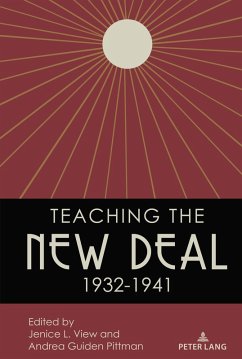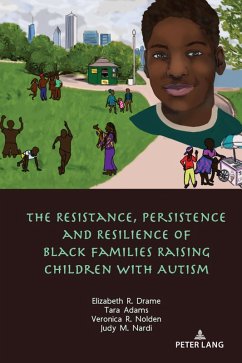
Teaching History to Black Students in the United Kingdom (eBook, PDF)
Versandkostenfrei!
Sofort per Download lieferbar
Statt: 95,35 €**
72,95 €
inkl. MwSt.
**Preis der gedruckten Ausgabe (Gebundenes Buch)
Alle Infos zum eBook verschenkenWeitere Ausgaben:

PAYBACK Punkte
36 °P sammeln!
At a time when populist movements have gained ground across the globe and migrants have taken center stage as unwanted pariahs in the eyes of many, this book dares to tackle a culturally relevant threat, much talked about but seldom systematically uncovered or analyzed: the socio-cultural domination that permeates the minds of many Black students in the United Kingdom as they negotiate between what they learn as history at school and their lived experiences and expectations. Kay Traille shed light on this visible invisible specter and uncovers the rich tapestry of forgotten ordinary histories ...
At a time when populist movements have gained ground across the globe and migrants have taken center stage as unwanted pariahs in the eyes of many, this book dares to tackle a culturally relevant threat, much talked about but seldom systematically uncovered or analyzed: the socio-cultural domination that permeates the minds of many Black students in the United Kingdom as they negotiate between what they learn as history at school and their lived experiences and expectations. Kay Traille shed light on this visible invisible specter and uncovers the rich tapestry of forgotten ordinary histories that should make societies richer and better. Using the words of students, teachers, government reports and fictional narratives this book challenges the audience to place themselves into this historical stream of culture to better understand and teach black students. Through the means of critical race theory, social constructivism and aspects of social constructionism, a narrative approach and personal experiences the author excavates points of personal connection through the gateway of stories to enter worlds and make meaning. Traille points out the study of history is socially constructed and not impartial academic information and most history teachers in the United Kingdom are White, female and middle class and increasingly the students they teach are not, undoubtedly making for cultural dissonance between students and teachers. Furthermore, students and teachers knowingly and unwittingly grapple with silent vivid racist experiences in and outside of the classroom that bleed into history lessons. The way students are socialized and taught may impact on their ability to function with alternative narratives or participate as active and engaged contributors to democratic life. This book invites the audience to uncover and acknowledge cultural biases, oppressive power relationships and dominating epistemologies to emerge better equipped to plan for and teach these students, allowing them to know they are valued and an integral part of British society.
Dieser Download kann aus rechtlichen Gründen nur mit Rechnungsadresse in A, D ausgeliefert werden.













